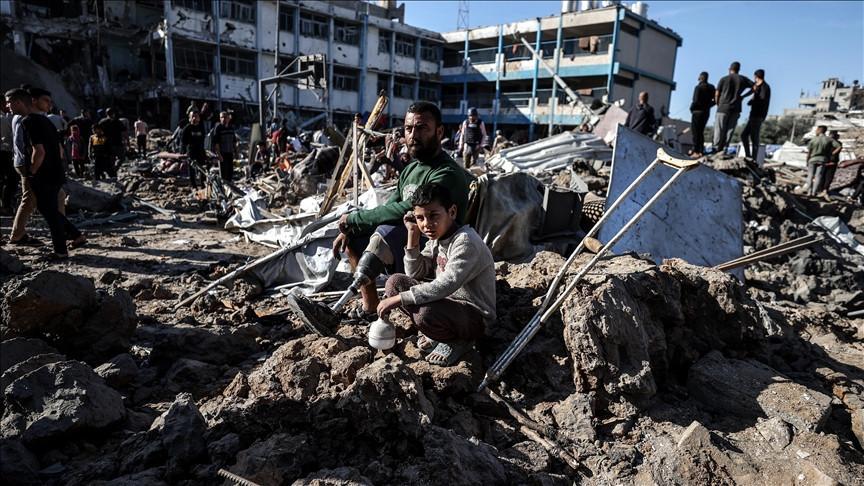
Ceasefire negotiations in Gaza have hit an impasse, as Palestinian and Israeli negotiators remain at odds over the withdrawal of Israeli troops from the territory, specially from the southern city of Rafah.
The delegations have now spent a week trying to agree on a temporary truce to halt 21 months of bitter fighting in the Gaza Strip.
Each side accused the other of blocking attempts to secure an agreement at the indirect talks in the Qatari capital, Doha. There has meanwhile been no let-up in Israeli strikes on Gaza, where Israeli air strikes on July 13 killed more than 30 Palestinians, including children at a water distribution point
Hamas wants the complete withdrawal of Israeli forces from Gaza as part of the 60-day truce deal, but a Palestinian source said Israel had presented plans to maintain troops in more than 40 percent of the territory.
The source said Israel wanted to force hundreds of thousands of Palestinians into the south of Gaza "in preparation for forcibly displacing them to Egypt or other countries.”
Rafah plan would cost $4 billion
The southern city of Rafah lies at the heart of what is widely seen as Israel’s long-term displacement plan, particularly through the proposed “humanitarian city” project.
Israeli sources estimated that building a proposed humanitarian city in the Rafah region could cost between $2.7 billion and $4 billion, with Israel shouldering most of the financial burden at the outset.
The envisioned compound — essentially a sprawling tent camp — would accommodate up to 500,000 displaced Palestinians. According to planners, residents relocated there would not be permitted to return to northern Gaza.
The initiative has triggered intense criticism within Israel’s defense ranks, with some warning that it risks laying the groundwork for a future Israeli military administration in Gaza. Human rights organizations have denounced the project as a form of forced population transfer.
Israeli army chief Eyal Zamir has been vocal in his opposition during cabinet discussions, openly challenging both Israeli Prime Minister Benjamin Netanyahu and Finance Minister Bezalel Smotrich.
Late last week, Smotrich approved preliminary budget allocations to begin laying the groundwork for the initiative.
“The total cost will likely land closer to $4 billion,” said one Israeli official.
Government officials claimed Israel expects to be reimbursed in the long run by Gulf nations, including Saudi Arabia and the UAE, once they take charge of Gaza’s postwar rebuilding. However, even those involved in the project express doubts about its viability.
“There’s almost no chance this ever comes to fruition,” one insider said.
In response to growing backlash, Smotrich’s office accused critics of exaggerating cost estimates to sabotage what it called “the prime minister’s humanitarian separation plan,” aimed at isolating Hamas from the civilian population. A spokesperson said that several hundred million dollars had already been authorized to begin preparing a secure area for displaced residents.